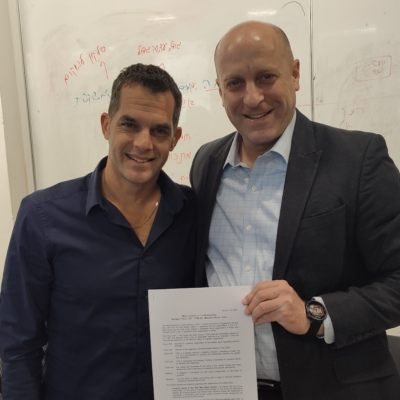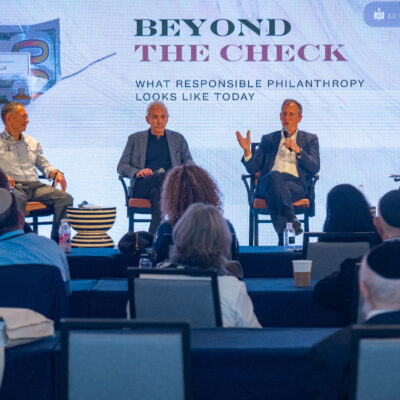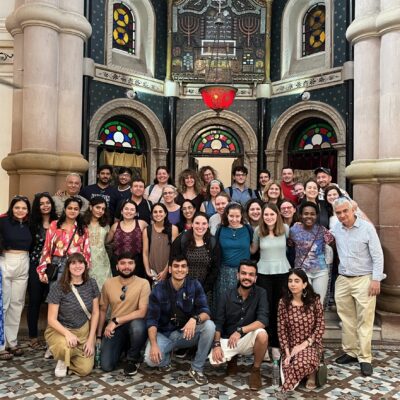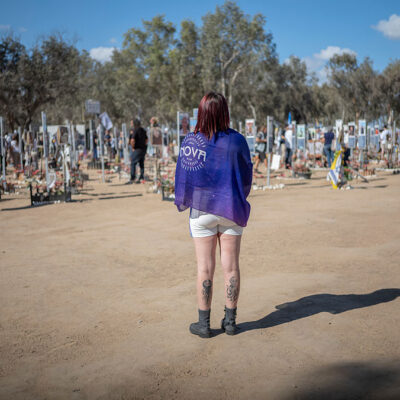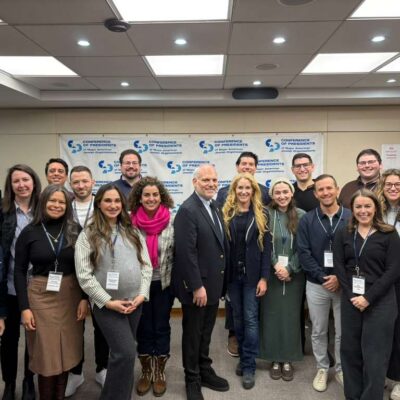Opinion
Campus beat
Break the cycle of antisemitism at CUNY
In Short
CUNY has pointedly not acknowledged that the tidal wave of hatred directed against Jewish students more often than not targets them on the basis of their ancestral and ethnic connection to Israel.
Antisemitism is rearing its ugly head at the City University of New York. Jewish students at the 25 colleges that make up the CUNY system have repeatedly experienced harassment and discrimination as a result of their faith, including Zionism. Public outcry has reached a fever pitch. Chancellor Félix V. Matos Rodríguez is feeling the pressure and finally saying the right things. But his words are not enough. To combat the antisemitism epidemic, CUNY must take meaningful action to treat the disease itself, not just the symptoms.
CUNY has a proud history. The first free public college in the United States, it was once known as a safe haven for Jews at a time when many institutions of higher learning sought to keep them out. Sadly, things have changed dramatically in recent years. CUNY faculty have formally embraced the antisemitic boycott, divestment and sanctions campaign. A CUNY student group pledged to create programs to challenge and critique Jews so that they may “unlearn” Zionism and their Jewish identity. CUNY’s law school chose a commencement speaker who praised terrorists who murdered Jewish civilians with axes and called to “globalize the intifada” and destroy Israel. A CUNY student government organization even passed a resolution to ban Hillel.
Getty Images
Newman Vertical Campus, Baruch College, New York
Chancellor Matos Rodríguez remained silent through all of this. He refused to show up to a New York City Council hearing called specifically to address rising antisemitism at CUNY. In a perfect illustration of how seriously he took the problem, the chancellor hired a top ranking official from the Council of American Islamic Relations to investigate antisemitism. She remains in her role as chief diversity officer at CUNY Central Office to this day.
At the beginning of the fall semester, Alums for Campus Fairness launched a six-figure advocacy campaign to bring attention to this disturbing trend. Our alumni network circulated petitions, took out full-page ads in major newspapers, ran digital ads throughout the state, and organized social media activism. We aimed to pressure the Chancellor to reverse course and get serious about protecting Jewish students. Elected officials, from New York to Albany to Washington, D.C., have since spoken out and demanded accountability.
Chancellor Matos Rodríguez clearly got the message. Based on his change in attitude and media blitz over the last few months, he at least recognizes that he has a public relations problem on his hands. But beyond platitudes and a token investment in programming, there is not much to be excited about. CUNY has not changed a single policy. The chancellor announced a new reporting tool for antisemitic incidents, but will not define antisemitism. He still refuses to adopt the internationally recognized definition, as countless other colleges and universities have done. Alums for Campus Fairness has engaged with schools around the country on this specific issue. Dozens of campuses have adopted the International Holocaust Remembrance Alliance (IHRA) standard. CUNY has not.
The chancellor is following a sensible public relations strategy. He acknowledged the problem and put together a list of anodyne actions he is taking to remediate the situation. The response is designed to placate his critics without committing to substantive action that could invite any sort of pushback from another constituency. It all looks satisfactory in an op-ed, so long as the reader doesn’t dig any deeper. If he truly wants to make CUNY safe for Jews again, Chancellor Matos Rodríguez must do the hard work of fighting modern antisemitism at its root cause.
CUNY has pointedly not acknowledged that the tidal wave of hatred directed against Jewish students more often than not targets them on the basis of their ancestral and ethnic connection to Israel. Does the chancellor understand that when Jews are shunned or excluded from campus life under the guise of “anti-Zionism,” it is akin to shunning or excluding someone on the basis of religion, ethnicity and national origin? The California State University System recognizes Zionism as an integral part of Jewish identity for many Jews, and provides anti-discrimination protections accordingly. Why won’t CUNY do the same?
This is not a unique problem for the City University of New York and its chancellor. While the system’s unique funding structure (it receives appropriated funds from both the City and State of New York) brings a level of accountability we do not see everywhere, the reality is antisemitism is spiking on campuses across the country. Some administrators have met the moment, like president Melvin Oliver at Pitzer College and Mark Schlissel, the former president of the University of Michigan. These leaders genuinely listened to their campus Jewish communities and addressed their concerns with actions, not just words.
Alums for Campus Fairness has a robust chapter at CUNY, with hundreds of alumni, students and parents. We genuinely hope Chancellor Matos Rodríguez hears us and understands the gravity of this situation. It is not too late to change the downward trajectory of the CUNY system and preserve this great institution for generations to come. What will define his legacy is not whether he quells the public outcry with a shrewd PR strategy, but whether or not he makes CUNY safe for Jewish students again.
Avi D Gordon is the executive director of Alums for Campus Fairness. Avi has over a decade of experience in the Pro Israel campus space. He graduated from Binghamton University in 2010, majoring in Judaic Studies and minoring in International Studies. He received his Master’s in Israel Education from George Washington University through the iCenter. Originally from Harrisburg, PA, Avi resides in South Florida with his family.

 Add EJP on Google
Add EJP on Google
